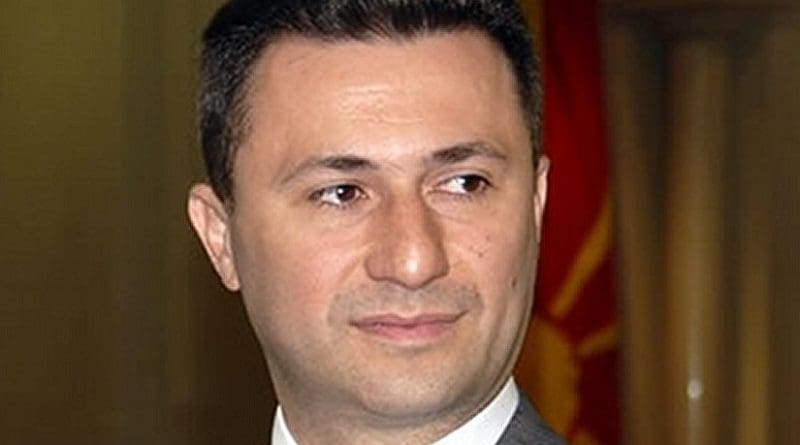Macedonia: VMRO DPMNE Suffers Shock Defeat In Polls
By Sinisa Jakov Marusic
The first round of local elections on Sunday in Macedonia was a disaster for the former ruling party, whose leader, Nikola Gruevski, now faces awkward questions about his future.
The right-wing VMRO DPMNE party of former Prime Minister Nikola Gruevski suffered a crushing defeat on Sunday in elections for 81 mayors and municipal councils, completely losing its former dominant position in local government.
The party, which in the last local elections in 2013 won 56 municipalities, including the capital Skopje, on Sunday won only in three rural areas near Skopje.
According to the first official results, published on Monday, VMRO DPMNE also has a slight lead before the second round, set for October 29, in six more municipalities.
The most significant is in its former bastion of Stip where its candidate won some 30 more votes than his opponent from the ruling Social Democrats, SDSM, which will make for a tight second round.
The SDSM, according to the election commission, won the mayoral races in 37 municipalities in the first round and has a convincing lead in another 13 municipalities.
The SDSM, which won only four mayoral seats last time, is also close to clinching victory in Skopje, the main prize in these elections.
Results show that out of 97.52 per cent of counted votes, it reached the threshold of over 50 per cent of all votes, meaning victory in the first round.
Exceeding all predictions, the SDSM has snatched a convincing victory or lead in many former VMRO DPMNE strongholds, including the towns of Prilep and Ohrid and the Skopje municipalities of Gazi Baba, Butel, Kisela Voda and Aerodrom.
Almost the entire east of the country, which was also seen as a VMRO DPMNE stronghold for the past decade, is now in the hands of the SDSM as well.
The shock result may end the political career of VMRO DPMNE leader Nikola Gruevski who, after calling the elections a referendum on his return to power, conceded defeat while complaining of many irregularities.
Gruevski, who is facing criminal investigations related to his party’s 11 years in power, as well as calls to step down from within his party, on Sunday declined to say whether he would resign.
“As the party president, I certainly hold most responsibility for these results. We will discuss this immediately after the end of the elections,” Gruevski told a press conference.
After 11 years in power, Gruevski’s party was ousted in May, ending an almost three-year-long political crisis centered around allegations of widespread corruption and authoritarian tendencies within the party.
Election race continues in Albanian areas:
In the ethnic Albanian bloc, the junior ruling party, the Democratic Union for Integration, DUI, has secured certain victory only in two municipalities, but maintained a lead in 10 others over its rivals from the opposition BESA movement and the Alliance for Albanians.
These municipalities are concentrated mainly in the north-west, where most ethnic Albanians live. Albanians make up about a quarter of the country’s population of just over 2.1 million.
The results in the Albanian camp, however, where the town of Tetovo and the Skopje municipality of Cair are seen as the prizes, promise an interesting second round.
This is because the DUI’s lead in many areas barely matches the combined number of votes won by their two rivals who could still stand a chance if they combine forces.
The situation in the ethnically mixed south-western town of Struga is unusual. This is the only town where the Alliance for Albanians won a convincing lead in the first round over the DUI.
But the DUI there hopes to turn the tide in the second round thanks to its alliance with the SDSM which should bring them a considerable number of ethnic Macedonian votes.
Struga was one of the few municipalities where the SDSM and the DUI did not support each other in the first round but promised to do so in the second turn. In many other areas, the two parties collaborated by promoting a single candidate.
One curiosity was the rural municipality of Aracinovo near Skopje which became the first Albanian-dominated municipality to elect a mayor from the ranks of the Social Democrats, a predominantly ethnic Macedonian party.
The second round of elections will most likely be held in 35 of the 81 municipalities between the two leading candidates from the first round.
In more than 20 of them, the SDSM and VMRO DPMNE or its smaller alliance partner will be pitted directly against each other. The DUI and the Alliance for Albanians will compete in five while DUI will face the BESA movement in seven.
Candidates from other smaller parties or independent candidates managed win or take the lead in just a few areas.

